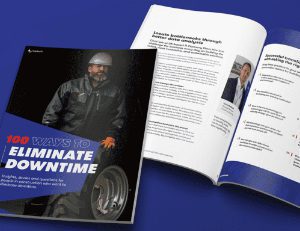

In the age of the sound bite, data as the new oil was quickly seized upon by everyone from analysts and journalists to sales people and marketeers. On reflection, I remember that no conference was complete without a slide endorsing the sentiment. Maybe we all enjoyed the feeling of being part of a new frontier made in uncharted territory.

Little more than a decade later, the analogy isn’t holding up too well. Certainly our own data scientists at Trackunit are increasingly opposed to the comparison. The publication on Forbes’ website of “Here’s why data is not the new oil” by best selling author Bernard Marr sums up much of the feeling here, and is one of a number of articles which prompted me to put pen to paper.

For me, I think Bernard Marr gets it right when he says that some of the parallels between oil and data are justified. For example, just as oil was at the heart of rapid industrialization in the 19th Century, in the 21st Century, data represents the power of transformation. From artificial intelligence and machine learning, to automation and predictive analytics, data provides the pulse.
From artificial intelligence and machine learning, to automation and predictive analytics, data provides the pulse.
In its raw state, oil is always more or less the same. To become useful, it needs to be processed, refined, converted into something else. Additionally, there is a fixed amount of oil available to us on the planet. It’s a scarce resource and like all fossil fuels it is not renewable – Mother Earth is not creating any more which will be useable in our lifetimes.
Data, on the other hand, comes to us in all sorts of forms, some of it immediately useful and valuable. And it’s abundant. Within the Trackunit ecosystem there’s a near-infinite amount of data from people including technicians, machine operators and fleet managers; from the performance of machines, as well as their spare parts and diagnostics, and from systems such CRM, ERP and Service Management.
Data is available in many forms, ready to power our customer’s businesses.
Oil is a single use commodity. Once expended, it can become problematic. We are probably all too aware of the threat to wildlife and the natural environment being caused by the presence of plastics in our waterways and seas; or the damage created by emissions polluting our atmosphere and its causal link with climate change.
Once put to use, oil becomes useless. By complete contrast, data can become more useful the more it is used. As a colleague of mine puts it, we can get endless mileage from a single byte. Its energy is not lost, rather, as Marr says, “processed data often reveals further applications.”

Like oil, data has power. And all power, as they say, corrupts. Rather than have a culture of data barons working to build their own power bases and wealth, much as 19th and 20th Century oil barons did, we need regulation to ensure that data is made to work for the global good and not just the interests of some.
Unlike oil, the value of data is not grown by simply accumulating more. It is the use to which it is put and the insights that it provides through analytics and combination with other data sets that drives the real value. Data is not a finite resource, it is infinitely durable and reusable. Storing it in silos will not increase its value, for that to happen, it needs to be used.
That said, we need checks and balances in place to ensure that anonymised data can be used freely with full observance to the law, to prevent abuse.
Data is not a finite resource, it is infinitely durable and reusable.
Maybe data is like the new oil in some respects, but in the majority it’s very different. As Forbes points out, it’s an incomplete analogy. It would make more sense to consider data as a source of energy, and in terms of its availability and abundance, consider its similarities with renewables such as the sun, the wind and the tides. Instead of throttling supply for financial gain we should be thinking about how to make it most widely accessible to benefit all mankind.
At Trackunit we are fully immersed in a mission to eliminate downtime from the construction industry by 2025. Data, in all its forms, are going to help us fulfil this ambition. If you’d like to read more about our goal, please visit www.trackunit.com/services/

Never miss an insight. We’ll email you when new articles are published on this topic.

